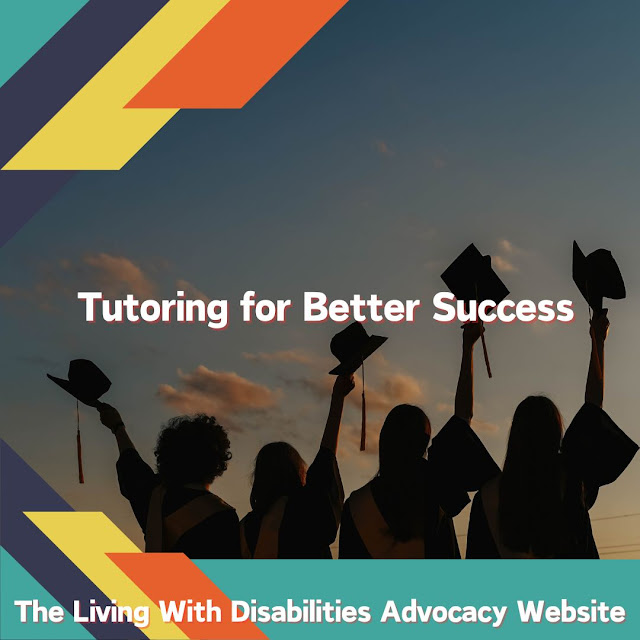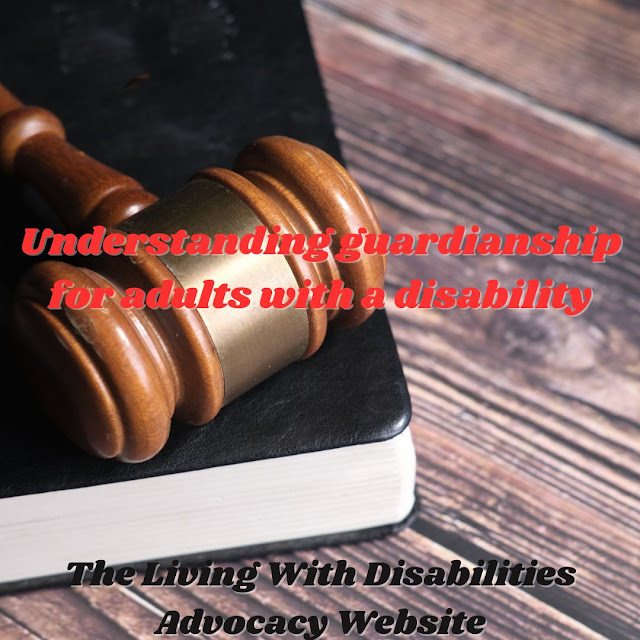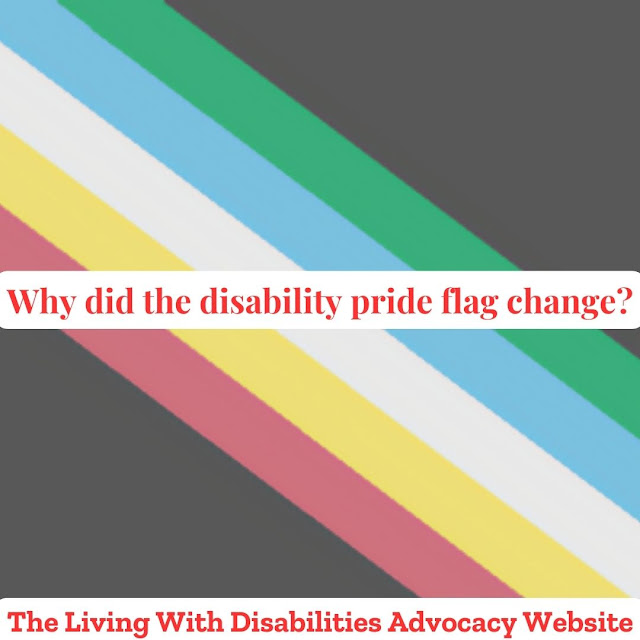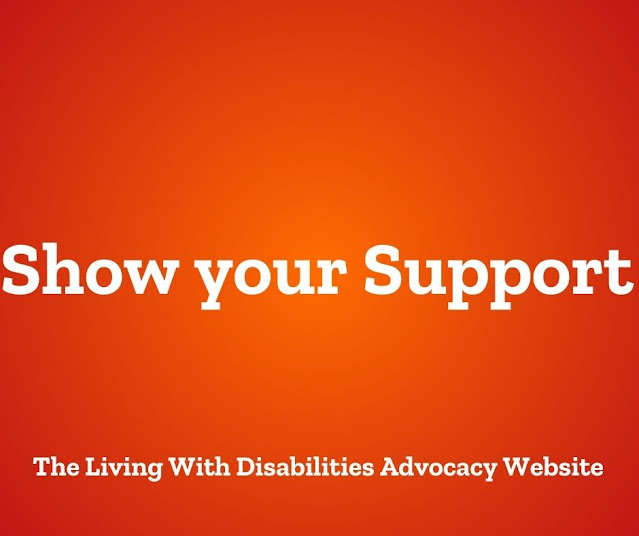Tutoring for Better Success
If you're a new visitor to this advocacy website, this page aims to increase public understanding of those with disabilities and other conditions.
We suggest you seek a licensed professional counselor or healthcare provider for anything you read on this site.
This week, Living With Disabilities will discuss the importance of appropriate access to accommodations for students with disabilities when it comes to tutoring.
Before we begin, it's important to read this article thoroughly and empathize with the perspective of a parent, guardian, sibling, or teacher to gain a deeper understanding of your child, sibling, or student. Keep in mind that learning is not always straightforward, and individuals with disabilities or conditions may face numerous challenges. Therefore, be attentive and recognize that their experiences are not merely imaginary.
Katrina Smith, the host, could open the discussion by sharing her personal journey of living with a disability from a young age. Struggling with Math and English has been a constant challenge for her, persisting into adulthood. Although her use of English has improved, it still occasionally hinders her daily writing and speech. Katrina notes that frustration can build up, complicating daily life. This stress may exacerbate her stuttering and other related symptoms. Privately, she copes by sharing jokes and laughter with her family, finding humor as a way to navigate through the challenges. Finding a coping skill that works away from family is when the challenge truly begins. There's no room for laughter or jokes in facing the real world; it's all about staying focused. Paying attention makes the lecture easily understandable.
In terms of a lifetime race, those who remain calm, quiet, and persistent are more likely to emerge victorious, as famously observed by Robert W. Service. However, when it comes to education, this trait must be balanced with the ability to speak up and seek help when needed.
From birth, we are surrounded by teachers, starting with our parents and then extending to others. Our parents are our first educators, imparting lessons through their adaptability all year round. If this idea seems vague, recall the show-and-tell activities from your childhood, and consider how they reflect the way your parents nurtured you. Do you see a pattern here? if so great.
Some individuals with disabilities may need support throughout their entire academic journey. A few may seem to adopt an approach similar to the concept of show-and-tell. While others can and will seek a different concept through tutoring, embracing these concepts can guide both children and adults toward a brighter future.
We're not finished here yet because there's a lot more that needs to be done. When it comes to succeeding and aiming high for that dream goal.
"We still have a lot of work to do, so we're not finished yet. According to Alice Miller, listening promotes learning. This, in turn, promotes even greater listening. Listening attentively to others is crucial when it comes to achieving high goals. In other words, we need empathy to learn from a child, and it can be developed through learning."
Students with disabilities often require extra time to complete assignments. For some, like Katrina Smith, host of "Living with Disabilities," the challenge arises when leaving campus grounds. She compares it to plugging in a lamp on campus, which allows her to understand and visualize the information presented. However, once off-campus and the lamp are unplugged, retaining that information becomes difficult without the visual aids that help her process and recall the information. Living with disabilities, one can empathize with students who have walked in similar shoes. Both auditory and visual learning are needed to grasp an assignment completely. Without both, learning can become difficult and quite frustrating.
The educational system can enhance support for students with intellectual disabilities by ensuring they can access information taught in class. It is essential to provide accommodations beyond the campus, and such tools should be directly accessible through the student's teacher or professor. Similarly, students with other disabilities requiring off-campus accommodations should receive equivalent support.
What should these tools consist of, and how can students become successful by using these tools. Before we go into sharing these tools, let's talk about what the school system may come back as to why they cannot provide these tools. There are many ways of providing for every student's essential needs. It's through teamwork and the host can give one prime example; If the district is running low on funds, hold a fundraiser. Like, a fashion show. The only people who are in the fashion show are people with disabilities. But it's open to the public.
During her high school years, the host's school organized a fashion show to fundraise for the school district. The proceeds were directly allocated to the schools' necessities. Recognizing their challenges, the district didn't just stay in the loop; instead, all the schools within the district united to generate funds for their collective needs.
If that does not give you a visual of what you can do if you find your school system in a tight situation. Many other ideas could be constricted in raising funds. Now that we have covered that for you. Let's get right into the tools that students can use once school has ended. So, your student has gone to the tutor for the amount of time given, they even came to the professor's office hours, that if you're in college. These two required students to be on campus. And being on campus was that plugged-in lamp. How can we make that plugged-in lamp portable? plugged-in?
Teachers or professors can offer valuable advice regarding accommodations for students. For instance, some students may need to use a voice recorder to capture lectures, a provision that should not astonish educators. However, issues may arise if a professor prohibits recording, which they have the right to do. Information was provided to the host during her college years. This includes situations where accommodations cannot be used at all, a circumstance that the host has also experienced. How was she able to manage without her accommodations? The professor informed her, "I want to observe your performance without assistance initially, and should you encounter difficulties, I will then offer the necessary services." Only one service was already provided before the professor had that conversation with Katrina. She was already given the front-row seat.
Tools that would come in handy off-campus grounds. For visual and auditory learners.
1. Both video and audio access to the lesson.
2. Virtual business hours. If you cannot provide a virtual business hour, provide a video recording of the lecture, given with some demonstration.
3. The school system provides a twenty-four-hour tutoring service where students can have access to a tutor, off-campus that works with the professor and knows the assignments.
Living With Disabilities Presents: The Advocacy Table
a space created for people with disabilities to be able to have freedom of speech and talk on different topics surrounding the disability community. To get more details, check out The Advocacy Table. To become a panelist, write into the show and let the host know what topic you want to talk about. She will then send out a group email to all panelists after the show has reached five or ten people. After the show, a survey will be emailed to you, and we would love to get your feedback.
If you need online support, Disability Safe Haven is great for receiving support. The We Care Team is very protective of its members and asks everyone who joins, to have a profile picture and answer the security questions.
Another online support, Living With Cerebral Palsy, is great for people with cerebral palsy and for family and friends who want to learn more about different types of cerebral palsy and how to support their loved ones who have it. This group has open and closing hours and a 24/7 chatroom. Open and closing hours are based on United States time zones.
If you are looking for Virtual fun, a group filled with creative activities, and a space where you build on friendship. United By Creative Minds, is a space for people with disabilities only! Must have a profile picture and answer the security questions.
Podcast link




Comments
Post a Comment